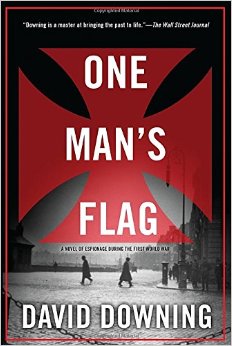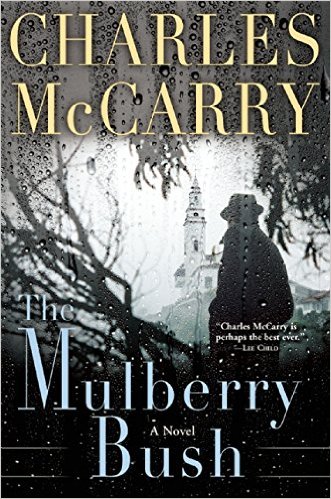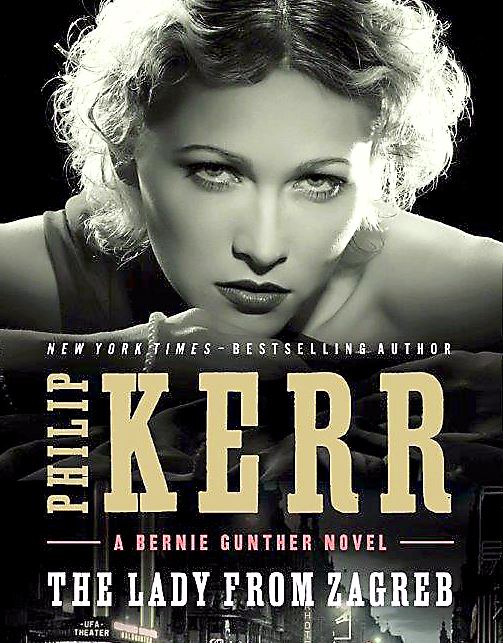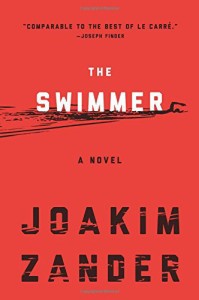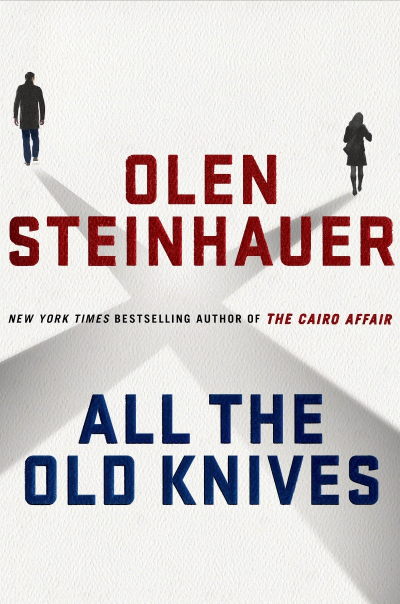Author: admin (Page 6 of 16)
Reprinted from Washington Decoded.
A Spy Among Friends: Kim Philby and the Great Betrayal
Ben Macintyre
Crown. 384 pp. $27
In A Spy Among Friends, author Ben Macintyre portrays Harold A. R. “Kim” Philby as a charming, glamorous double agent, a Marxist Scarlet Pimpernel, able to confound British and American intelligence officials even after his complicity as a Soviet spy should have been apparent to all. The New York Times named A Spy Among Friends one of the top 50 non-fiction books of 2014, and it has been praised by the likes of Malcolm Gladwell, Walter Isaacson, and David Ignatius, among others.
While the book is an entertaining read, Macintyre’s account of Philby as the Perfect Mole is deeply flawed. A Spy Among Friends perpetuates several myths: it misstates how Philby was viewed by the intelligence communities in Britain and the United States; it downplays the critical role of the FBI and the VENONA intercepts in exposing Philby and his fellow “Cambridge Five” spies; and it ignores perhaps Philby’s most significant “great betrayal”—the role that he and his fellow agents, Donald Maclean and Guy Burgess, played in passing American military plans to Moscow during the Korean war.
Macintyre centers his narrative around Philby’s friendship with fellow MI6 official Nicholas Elliott, a story suggested by John le Carré (aka David Cornwell) as one worthy of telling; le Carré accordingly contributes an afterword to the book. Yet this angle, allegedly the “best untold spy story of the Cold War” according to Macintyre and le Carré, isn’t particularly compelling. Elliott was a rather conventional, clubbable intelligence officer whose main claim to fame was believing in Philby until his friend’s guilt became impossible to deny. Rather than thinking for himself, Macintyre simply doubled-down on le Carré’s rendering of the Philby saga. Le Carré is famously invested, of course, in the symbolic importance of Philby-as-Master-Spy, elusive betrayer of a decadent Establishment. The famous fictional mole at the Circus, Bill Haydon, was a thinly-veiled stand-in for Philby in le Carré’s celebrated novel, Tinker Tailor Soldier Spy.
The Legend of Philby’s Charm
It’s true that many within Philby’s insular, hard-drinking Oxbridge circle succumbed to what Macintyre calls his “golden charm,” and were shocked when the truth emerged. Graham Greene, who worked with Philby during the Second World War, never abandoned his hero-worship of Philby, even visiting him in Moscow after he defected.
But that was not how Philby was universally perceived. Others in British intelligence weren’t as entranced. Senior MI6 official Patrick Reilly, for example, objected strenuously to the idea of Philby as future head of the Secret Intelligence Service (SIS) when it was proposed in the early 1950s. “I’m not particularly sensitive,” Reilly later explained, “but it was the only time in my life when I felt, ‘There is something wrong with this fellow.’”[1]
When Philby arrived in Washington in 1949 to become the British liaison to American intelligence (replacing Donald Maclean), he failed to impress many of his new colleagues. The FBI’s Robert Lamphere expressed surprise that this stammering Englishman was a top SIS official: “Kim Philby was seedy and spoke with a stutter. His clothes were loose-fitting and shabby, and his face and figure had few notable features. I could hardly believe that this unimpressive man was being spoken of as a future chief of MI-6, in line for a knighthood.”[2]
Soon, the CIA’s Frank Wisner suspected Philby of betraying Albanian émigrés, who were engaged in a series of ill-founded covert operations aimed at spurring a revolt in Communist Albania. The CIA’s counterintelligence chief, William King Harvey, came to distrust Philby as well. Allen Dulles, then the Agency’s deputy director of intelligence, also developed reservations about Philby. Dulles shared his concerns with CIA director Walter Bedell Smith in 1951, who alerted deputy director William Jackson and Jackson moved to shut off Philby’s access to top-secret information.[3]
Macintyre fails to mention any of this. He sticks to the myth of Philby’s golden charm (“Philby loved Washington, and Washington loved him”) and apparently accepts at face value Philby’s dismissive views of his American colleagues:
There was Johnny Boyd, assistant director of the FBI (“by any objective standard, a dreadful man”); Frank Wisner, head of the Office of Policy Coordination (“balding and self-importantly running to fat”); Bill Harvey of CIA counterintelligence (“a former FBI man . . . sacked for drunkenness”); CIA chief Walter Bedell Smith (“a cold, fishy eye”); deputy CIA head and future chief Allen Dulles (“bumbling”); Bob Lamphere of the FBI (“puddingy”); and many more.[4]
Philby shared these opinions in his autobiography, My Secret War. In retrospect, it’s clear they reflect his pique that he couldn’t charm and fool the “plodding” plebian Americans the way he had some of his colleagues at home. In fact, British counterintelligence was shoddy. Klaus Fuchs, the physicist who passed atomic secrets to the Soviets, was cleared six times by Roger Hollis, future director general of MI5 (the British equivalent of the FBI). One of the Cambridge Five, Anthony Blunt, estimated that there were twenty or thirty more Soviet moles well placed within the British government; others, like MI5’s Peter Wright, believed the numbers were higher.[5]
It was an American operation—the VENONA decrypts of Soviet cable traffic—that directly led to the unmasking of both Fuchs and the Cambridge spies. A cable that pointed to a high-placed British penetration agent, HOMER, in Washington led investigators to Donald Maclean. When Maclean, along with Guy Burgess (a second secretary at the British Embassy who was living in Philby’s house), bolted for Moscow in late May 1951, the damning links to Philby were obvious.
For all intents and purposes, Philby’s usefulness as a Soviet agent ended with the defections of Maclean and Burgess. Throughout A Spy Among Friends, Macintyre argues that senior members of the British and American intelligence establishment accepted Philby’s protestations of innocence. The record, instead, suggests that MI6’s defense of Philby was more about protecting bureaucratic turf and a reflexive closing of ruling-class ranks. There was no support for Philby in the United States, and the FBI’s J. Edgar Hoover, for one, argued vigorously for public exposure of Philby’s treachery.
After the Maclean-Burgess defections, CIA director Smith dispatched an ultimatum to Stewart Menzies, MI6 chief, demanding that London remove Philby—or Smith would cease all collaboration with the British. Smith sent a note to a British colleague about Philby: “I hope the bastard gets his. I know a couple of Albanian tribesmen who would like to have half an hour apiece with him.”[6]
Contrary to the picture Macintyre paints, top MI6 officials also reluctantly recognized that Philby was most likely the Third Man. James Easton, assistant to Menzies, accepted the American case against Philby (“a practiced liar and . . . therefore capable of anything”). Menzies, who retired in 1952, “suffered from nightmares, apparently to do with Philby”—which is hardly the profile of a man at ease with the idea of Philby’s innocence. MI5’s Dick White informed both Menzies and his successor, John Sinclair, that Philby was a security risk and most likely guilty of espionage (White was named head of MI6 in 1956).[7]
Philby’s replacement in Washington, John Bruce-Lockhart of MI6, began his first meeting with Smith by saying, “Walter, what happened with Philby and those other bastards is the greatest betrayal I know. My job here is to make sure there is a way past that.” (Despite the reference to a “Great Betrayal” in his book’s subtitle, Macintyre doesn’t include this quote).[8]
Foreign Secretary Harold Macmillan’s infamous public exoneration of Philby in the House of Commons in 1955 was driven by British political considerations, not by what MI5 had concluded about Philby’s complicity. Macintyre concedes that point, yet argues: “But within the CIA it was generally agreed that if MI6 considered him trustworthy, and Harold Macmillan had said he was innocent, then Philby must be clean.”[9]
The idea that the CIA considered Philby “clean” is laughable. Michael Howard Holtzman, one of Angleton’s biographers, noted: “This [Macmillan’s comments on Philby] did not go down well with the Central Intelligence Agency, where Angleton, along with most others was convinced that Philby was the Third Man.” Phillip Knightley observed, “After Philby, the special relationship was never to be the same again, and his treachery so poisoned the minds of some CIA officers that . . . they were never again able totally to trust even their closest colleagues.”[10]
Macintyre argues that Angleton continued to believe in Philby’s innocence throughout the 1950s. (Philby defected to the Soviets in January 1963). While Angleton may have been fooled by Philby prior to 1951 (and even then, there are suggestions that he suspected his British colleague), it’s hard to believe he would have ignored the list of lies Philby had told over the years that were documented by the FBI and MI5. Even if Angleton had remained skeptical about the case against Philby, the senior leadership of the CIA (Smith, Dulles, Wisner, etc.) had no such illusions.[11]
Philby and Korea
There are no index entries for “Korea” and “Korean War” in A Spy Among Friends, a startling omission. The most fascinating, and unresolved, questions about the Cambridge spy ring, revolve around its impact on the Korean War. In the early years of the conflict, Maclean headed the American desk in London, while Philby and Burgess had access in Washington to not only high-level strategic intelligence (for example, Truman’s thinking on the use of atomic weapons) but also to US war plans.
General Douglas MacArthur and other US commanders complained repeatedly in 1950 and 1951 that their North Korean and Chinese adversaries appeared to have advance knowledge of their plans. William Manchester, in his biography of MacArthur, American Caesar, wrote: “James M. Gavin, an officer untainted by McCarthyism, recalls that during his service in the last critical months of 1950, the enemy repeatedly displayed an uncanny knowledge of UN troop deployment.” According to Manchester, Gavin became “quite sure now that all of MacArthur’s plans flowed into the hands of the Communists through the British Foreign Office.”[12]
In 1955, General James Van Fleet told US News & World Report that: “The enemy would not have entered Korea if he did not feel safe from attack in Northern China and Manchuria. My own conviction is that there must have been information to the enemy that we would not attack his home base.”[13]
Anthony Cave Brown, author of Treason in the Blood (still the definitive biography of Philby) noted in a 1994 C-SPAN interview that many officials thought that “through Philby, the Soviet government learned enough about the deployment, the limitations of the force, the lengths and breadths of the strategy in Korea to be able to launch the Chinese counteroffensive at the right place, at the right time with the right weight and with terrible destructive force. If my opinion was asked for—and it often is on this case—I would say that Philby did, in fact, provide the Soviets with that type of information.”[14]
That Macintyre ignores this angle in his book may reflect both his Anglocentrism (the focus in A Spy Among Friends rarely strays from London and environs), and also, perhaps, an unconscious desire to absolve Philby of his role in the deaths of thousands of American and, yes, British soldiers. At one point Macintyre describes Philby as a “kind lover, a good friend, a gentle father, and a generous host. He had a talent for tenderness.” It’s hard to square that portrait with a man whose betrayals caused thousands of battlefield deaths and prolonged the Korean War.[15]
The Failure of British Security Policy
Armed with the VENONA decrypts and the revelations of former Soviet spies like Elizabeth Bentley and Whittaker Chambers, US counterintelligence moved aggressively to uncover and remove highly placed penetration agents. The Truman Administration’s clumsy federal loyalty program, which prompted some 3,000 or so government employees to resign and led to few hundred dismissals, undoubtedly eliminated some active or potential moles.
In Britain, it was a different story. The American approach to security was derided as excessive, McCarthyite, and consequently there was never a proper vetting of the intelligence agencies and the Foreign Service. Had it not been for VENONA, Fuchs and Maclean would not have been exposed. It’s quite possible that Kim Philby might have become SIS chief, placing a Soviet penetration agent at the head of British intelligence. During the late 1940s and 1950s, there was no George Smiley figure ready to ferret out and unmask the traitors. It’s no wonder that British intelligence was marginalized post-Philby and post-Suez, a bitterly-resented relegation that appears to have encouraged a lasting strain of snobbish anti-Americanism by British elites, as reflected in le Carré’s decades-long negative portrayal of the American “cousins.”[16]
A Spy Among Friends offers an entertaining and amusing account of the fading English elite in all its eccentric glory—a comic Downton Abbey view of the British intelligence establishment. As a serious work of historical scholarship, however, Macintrye’s book leaves much to be desired.
Jefferson Flanders is an independent journalist and author who has contributed to Washington Decoded in the past. His novel, The North Building, in part explores Kim Philby’s role in passing American military secrets during the Korean War.
[1] Tom Bower, The Perfect English Spy (New York: St. Martin’s Press, 1995), 103.
[2] Robert J. Lamphere, The FBI-KGB War (Macon, GA: Macon University Press, 1995), 130.
[3] Anthony Cave Brown, Treason in the Blood (Boston: Houghton Mifflin, 1994), 422; Leonard Mosley, Dulles: A Biography of Eleanor, Allen and John Foster Dulles and Their Family Network (New York: The Dial Press/James Wade, 1978), 284-285.
[4]Ben Macintyre, A Spy Among Friends: Kim Philby and the Great Betrayal (New York: Crown, 2014), 132.
[5] Robert C. Williams, Klaus Fuchs, Atom Spy (Cambridge, MA: Harvard University Press, 1987), 97.
[6] Mosley, Dulles, 285.
[7] Brown, Treason, 442-443; Stephen Dorril, MI6 (New York: The Free Press, 2000), 494; Bower, Perfect English Spy, 132-134.
[8] Quoted in Gordon Thomas, Secret Wars: One Hundred Years of British Intelligence Inside MI5 and MI6 (New York: Thomas Dunne Books, 2009), 131.
[9] Macintyre, Spy Among Friends, 226.
[10] Michael Howard Holtzman, James Jesus Angleton, the CIA, and the Craft of Counterintelligence (Amherst, MA: University of Massachusetts Press), 134; Philip Knightley, The Second Oldest Profession (New York: Penguin Books, 1987), 276.
[11] In 1950, Israeli intelligence officer Teddy Kollek, later mayor of Jerusalem, encountered Philby on a visit to CIA headquarters. Kollek remembered attending Philby’s marriage to an Austrian Communist, Litzi Friedmann, in Vienna in 1934 and he promptly recounted as much to Angleton. This incident is not mentioned in A Spy among Friends. (See Dan Raviv and Yossi Melman, Every Spy a Prince: The Complete History of Israel’s Intelligence Community (Boston: Houghton Mifflin, 1990), 91-92.
[12] William Manchester, American Caesar (New York: Back Bay Books, 2008), 597.
[13] Verne W. Newton, The Cambridge Spies: The Untold Story of Maclean, Philby, and Burgess in America (Lanham, MD: Madison Books, 1991), 295.
[14] C-SPAN Booknotes, Anthony Cave Brown: Treason in the Blood, Program Air Date: 15 January 1995.
[15] Macintyre, Spy Among Friends, 215.
[16] While John Bingham, the model for le Carré’s fictional George Smiley, worked for MI5 in the late 1940s and through the 1950s, he played no role in the investigation of Philby or the other Cambridge spies or George Blake, a MI6 official who betrayed scores of agents behind the Iron Curtain. See Michael Jago, The Man Who Was George Smiley: The Life of John Bingham (London: Biteback Publishing, 2013).
©2015 by Jefferson Flanders
Here are my picks for the best spy novels of 2015. Some of these thrillers may make the bestseller lists, and others may prove to have a narrower reader appeal. Please note that I’m partial to historical fiction about espionage that has a literary flair; the novels I’ve selected reflect that bias.
(Click for my list of 2014’s top spy thrillers and 2013’s top spy thrillers ).
Leaving Berlin by Joseph Kanon – TOP SPY NOVEL OF 2015
Leaving Berlin may be the most suspenseful of Joseph Kanon’s historical spy thrillers, a beautifully-crafted and evocative novel set in the ruins of 1949 East Berlin. Kanon’s The Good German took place a few years earlier, in 1945 Berlin, and he has an affinity for the city and its culture (just as novelist Alan Furst does for Paris between the wars.)
The novel’s protagonist is Alex Meier, a German-Jewish author who has spent the Second World War in Hollywood but has now run afoul of Congressional investigators who want him to “name names,” which as a matter of principle he won’t. No longer welcome in America, Meier finds himself warmly welcomed by the Soviet authorities ruling Berlin. But Meier has struck a secret, Faustian bargain with the CIA—in exchange for his eventual readmission to the U.S., where his twelve-year old son lives, he will spy on the Russians and their German Stalinist helpers.
Meier is not the only literary exile returning to post-war Berlin; Kanon includes two real-life figures—Bertolt Brecht, the German Marxist poet and playwright, and the anti-Fascist writer Anna Seghers (the pseudonym adopted by Anna Reiling)—who have also decided to live under Communism in the hopes of building a new society, a Workers’ Paradise.
Meier finds a city full of contrasts. Berliners can still travel between the Soviet, American, French, and British sectors. At the same time, however, the Soviets are trying to force the Allies to leave by cutting off access to the food and coal necessary for the city’s very existence. The West has responded with the Berlin Airlift, and the sight and sound of airplanes flying overhead is a constant reminder in Leaving Berlin of a growing Cold War tension that Meier can’t escape.
The novel explores the moral and psychological costs of betrayal. The CIA expects Meier to spy on his German friends from the past, including the beautiful aristocrat Irene von Bernuth, once his lover; the German secret police (the K-5, later known as the Stasi) are recruiting informants; and the Russians are setting the stage for a purge of Party members who suddenly find themselves labeled as counter-revolutionaries because they’ve made the wrong joke.
Kanon has fashioned a suspenseful and engaging story against this backdrop. As Dieter, a former Berlin cop now working for the Americans, and one of the more appealing characters in the book, explains to Meier “in this business at some point you have to trust somebody.” Who Meier can trust—and how the personal can trump the political—becomes the fascinating question at the heart of Leaving Berlin, and one that commands the reader’s attention until the very last page.
One Man’s Flag by David Downing
It’s 1915 and British intelligence agent Jack McColl is back, defending the far-flung Empire as the First World War rages in Europe. David Downing introduced McColl in Jack of Spies and he’s a likeable character, an English patriot who also sympathizes with the Indian and Irish nationalists chafing under imperial rule.
Jack has been tasked with disrupting plots against His Majesty’s control of British colonies, and that puts him in tight spots from Darjeeling to Dublin. At the same time, One Man’s Flag follows the travels of the feminist American journalist Caitlin Hanley—McColl’s estranged love interest—who chronicles the brutal war on the Western front.
One Man’s Flag is an engaging read, chock full of adventure and history. The British Empire held together until after the Second World War, when demands for independence and self-determination by its colonies could no longer be denied. Until then, the Foreign Service and intelligence agencies of the Crown fought a holding action, and Downing’s Jack McColl novels should offer an intriguing short course on this somewhat ignored history.
The Mulberry Bush by Charles McCarry
The desire for revenge—for payback against those who have wronged us—taps into deep evolutionary impulses. We must punish offenders to deter others who might be tempted to wrong us. Harsh, public reprisals discourage future offenses, or to cast revenge in a more positive light, it acts to encourager les autres into better behavior.
Charles McCarry’s latest, The Mulberry Bush, is an intriguing novel that employs the spy thriller genre to explore the theme of revenge. McCarry, a former CIA field operative, is best known for The Tears of Autumn, which offers an inventive conspiracy theory about the Kennedy assassination, and the political intrigue Shelley’s Heart, which John J. Miller of the National Review has endorsed as one of ten great conservative political novels.
The plot in The Mulberry Bush is quite simple: the son of a disgraced American intelligence officer becomes a spy himself in the hopes of damaging the institution he believes has ruined his father’s life. The novel is told from the first person perspective, and the protagonist—never identified by name—becomes a skilled field agent as he climbs the career ladder within the agency (called only Headquarters in the book) preparing for a day of reckoning. He meets and falls in love with a beautiful Argentinian woman, Luz, whose parents are revolutionaries, casualties of the Dirty War waged by the Argentine military government in the 1970s. She also wants retribution for the loss of her father and mother, and she blames the Americans for their support of the junta’s torturers. Together, they weave an intricate plot against Headquarters involving Latin terrorists and Russian spies. They have not accounted for the Law of Unintended Consequences, however, and events quickly spiral out of control.
Much of The Mulberry Bush is beautifully written and artfully plotted, leavened with bits of sly humor. McCarry is particularly biting when he writes about the willingness of radical elites to sacrifice their working class foot soldiers. The novel also some interesting things to say about love and betrayal.
In the end, however, The Mulberry Bush suffers from an identity crisis of sorts: it’s not quite realistic espionage fiction, nor is it a full-throttle conspiracy-driven thriller. McCarry asks the reader to suspend disbelief once too often. Russia’s FSB (the successor to the KGB) is portrayed as a modern-day SMERSH (of James Bond fame) with tentacles everywhere. The quasi-Maoist Latin American terrorist network in the book is pure fantasy. For my money, the thriller elements don’t add anything to the novel, and detract from McCarry’s intelligent consideration of the psychic costs of getting even.
The English Spy by Daniel Silva
In the past, I haven’t included any of Daniel Silva’s Gabriel Allon novels in my top spy thrillers lists. While his books are well-written and carefully researched, I’ve found Silva’s penchant for over-the-top plot twists and casual violence somewhat off-putting. But on the 2015 list I’m including The English Spy, the fifteenth in the Allon series, because of how Silva paints a disturbingly accurate picture of current Russian and Iranian intentions. As Silva noted in a recent “Meet the Press” interview, his very negative portrayal of Vladimir Putin’s regime in Moscow Rules (2008) has proven to be spot on; it appears that his depiction of the Russian-Iranian intelligence collaboration in The English Spy is playing out in the Mideast today.
In The English Spy Israeli super-agent Gabriel Allon teams up with a former SAS operative in hunting down a veteran IRA bomber who has murdered a member of the British royal family. As the story unfolds, Allon learns that the Russian FSB may be involved, and that there are more targets for bombing in the United Kingdom.
What’s different about The English Spy is how Silva’s novel directly criticizes the Obama Administration’s handling of Russia and Iran. In media appearances, Silva has been skeptical about the Iran nuclear deal and its lack of “anytime, anywhere” inspections. It’s a sad commentary that this former journalist and thriller writer has a better understanding of current foreign policy realities than does the State Department and White House.
The Lady from Zagreb by Philip Kerr
Philip Kerr says it was the encouragement of Ivan Held, president of G. P. Putnam’s Sons, that caused him to write yet another Bernie Gunther novel, even though Kerr wondered whether the character was played out after nine books. Held was proved correct by The Lady from Zagreb. There’s nothing tired or overly derivative about the novel, which features former Berlin homicide detective Gunther caught up in the dangerous internal politics of a Nazi Germany gone mad.
In his latest adventure, Gunther must dance to the tune of the notorious Joseph Goebbels, the German Minister of Propaganda, who has become besotted with a mysterious Croatian actress named Darla Dresner. Goebbels tasks Gunther with persuading Dresner to star in a Nazi propaganda film, a job that takes him from Berlin to the killing fields of Croatia and then to the placid streets of Zurich.
In Switzerland Bernie tangles with Gestapo thugs and OSS agents controlled by Allen Dulles (the future CIA chief) while falling heads-over-hells for the glamorous movie star, who has a few secrets of her own. Gunther must find a way to protect a woman he now loves without signing his own death warrant, a challenge he (not surprisingly) proves capable of meeting.
It’s hard to categorize Kerr’s novels. While they often employ traditional crime story elements (an unsolved murder or two) and feature a former cop, they also involve a fair amount of political intrigue and, at times, conventional espionage. At the same time, Kerr is interested in the compromises his subversive Everyman, Bernie Gunther, must make to stay alive and in what he can salvage of decency and love in a world seemingly without morality.
The Swimmer by Joakim Zander
The English translation of Joakim Zander’s The Swimmer arrives with considerable advance praise: author Joseph Finder lauds it as “comparable to the best of Le Carré,” and Kirkus Reviews calls it a “compulsively readable page-turner with unexpected heart.”
There’s no question that Zander, a Swedish author and lawyer, has carefully read Stieg Larsson’s Millenium trilogy ( The Girl with the Dragon Tattoo, etc.) and many of Larsson’s elements turn up in The Swimmer: a female punk hacker, corrupt lawyers, sinister conspiracies, Sweden in the winter, and even a sly meta-reference to Lisbeth Salander. A blurb on the novels’s inside book flap trumpets “Homeland meets Stieg Larsson.”
While an engaging beach or airport read, The Swimmer doesn’t live up to the literary hype—it’s more Dan Brown than John Le Carré. Zander understands how to keep a thriller moving, and he successfully borrows Brown’s technique of brief chapters ending with an unresolved conflict or crisis. Yet the novel is driven by an implausible plot (daylight gun battles in Brussels and Paris?) and a lazy Euro-left stance toward Islamic jihadism that—after the Charlie Hebdo attack and the rise of ISIS—is completely out of touch with current reality.
Zander’s novel focuses on American misdeeds in the War on Terror, echoing some of le Carré’s concerns explored in A Delicate Truth and A Most Wanted Man, but without Le Carre’s restraint and appreciation of nuance. (Zander does adopt le Carre’s reflexive anti-Americanism which remains fashionable in many European circles.)
The characters in The Swimmer aren’t fleshed out: there’s a deep-cover CIA agent, a bunch of young Swedish lawyers of varying backgrounds (a plucky feminist, an academic of Middle Eastern heritage, a sleek, corporate striver), a ruthless group of American intelligence contractors, and (of course) that punk-culture hacker. The narrative switches back and forth between Stockholm, Brussels, Paris, Amsterdam, the U.S., and the Middle East and Zander is at his best in his description of the varying urban landscapes.
Every reader, and reviewer, has her or her prejudices. I could do without Zander’s repeated references to brand names (Helly Hansen, Volvo, Nike, Elsa Beskow, Svenskt Tenn, Nespresso, Turnbull & Asser, iPhone, and Montblanc in the first 30 pages alone.) At least if there’s a movie version, product placement won’t be a problem.
All the Old Knives by Olen Steinhauer
Olen Steinhauer takes some risks with All the Old Knives, writing a stripped-down spy thriller that focuses on character rather than action, and the personal rather than the political. Forewarned is forearmed—readers looking for page-turning derring do will be disappointed but those intrigued by a deeper consideration of how intelligence officers struggle to balance loyalty and love will be rewarded.
The novel takes place in the recent past and is set primarily in Carmel-by-the-Sea, where Henry Pelham, a CIA agent based in Vienna, meets Celia Harrison, his former colleague and lover, for dinner at a “foodie” restaurant. Celia is married, with two children, but Henry still carries a torch for her. He has a professional reason for meeting her, however: the Agency is investigating a skyjacking at the Vienna airport six years earlier involving jihadist terrorists. Henry needs Celia’s recollections of how the CIA station handled the crisis, which ended tragically.
As they discuss the hostage situation and the past over a leisurely dinner, some disturbing questions emerge. Did someone in the Agency help the terrorists? Who? If so, why? At the same time, Henry has another more personal question he wants answered: why did Celia decide to break it off with him immediately after the crisis and leave the CIA?
All the Old Knives doesn’t boast an elaborate and complex plot, nor are the twists and turns Steinhauer introduces particularly surprising (or completely plausible); the strength of the novel lies in its exploration of Henry and Celia and why they have been drawn to intelligence work and to each other. They are flawed—adept at lying, wary of intimacy, ruthless when cornered—and, in the end, made for each other.
(Click for my list of 2014’s top spy thrillers and 2013’s top spy thrillers ).
Copyright © 2015 Jefferson Flanders
All rights reserved
Click to view the video trailer for Jefferson Flanders’ critically-acclaimed: First Trumpet Cold War trilogy.
Click to purchase the First Trumpet novels: Herald Square, The North Building, and The Hill of Three Borders.
